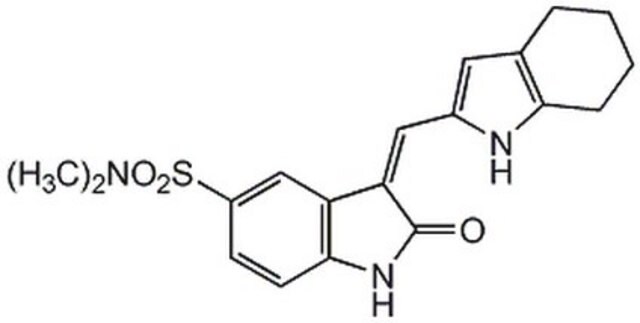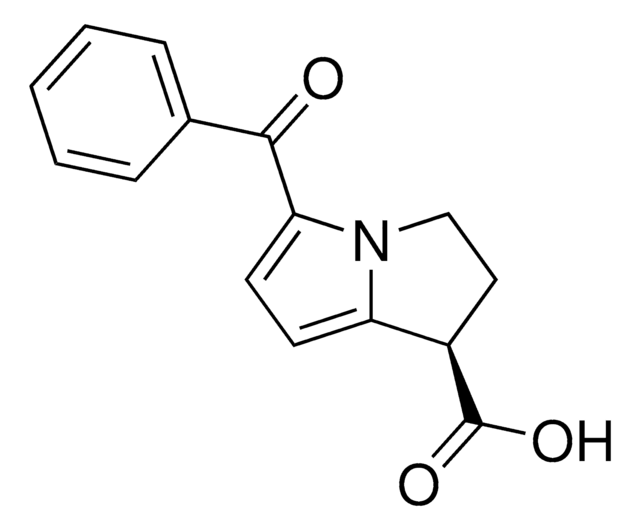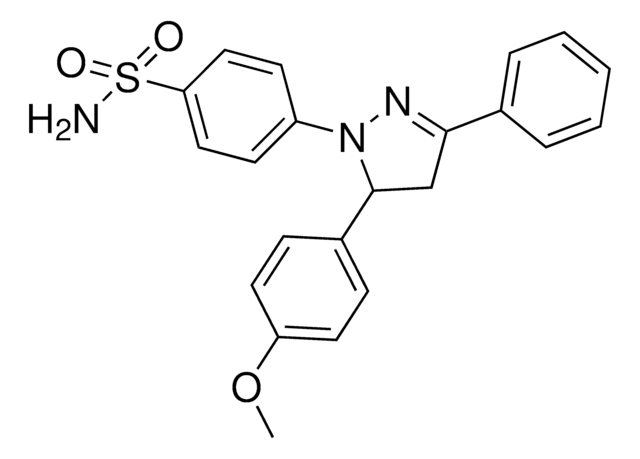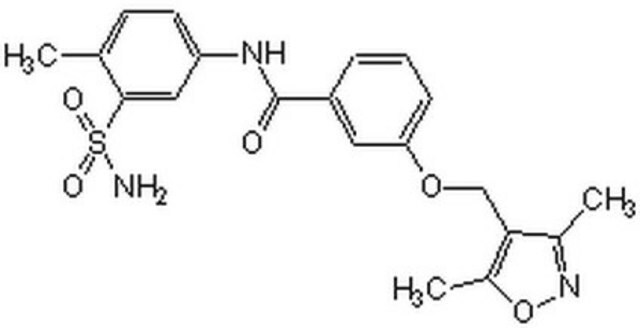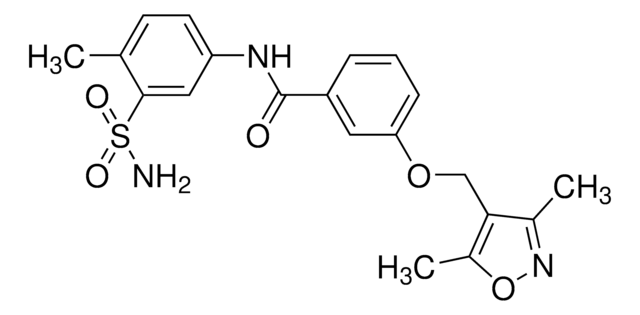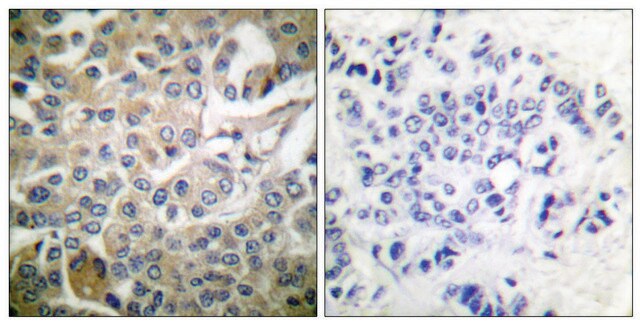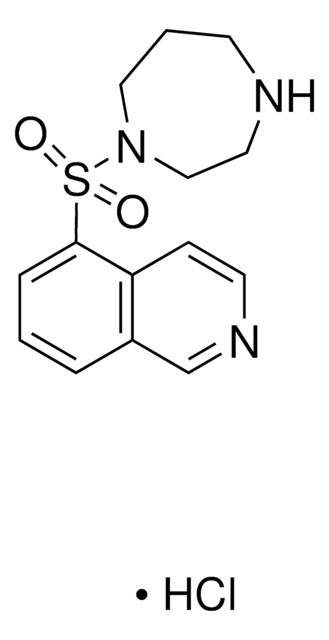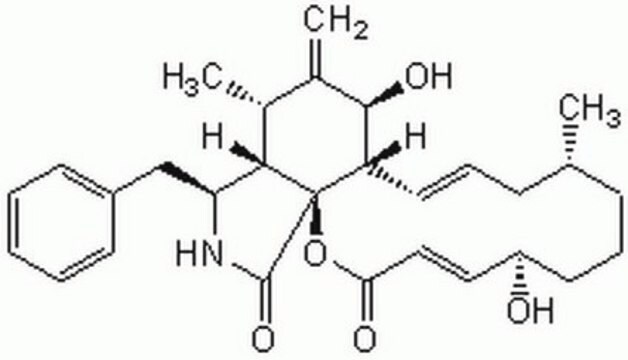553502
NSC23766 trihydrochloride
≥93% (HPLC), lyophilized, Rac1 inhibitor, Calbiochem®
Synonym(s):
Rac1 Inhibitor, NSC23766
About This Item
Recommended Products
product name
Rac1 Inhibitor, Rac1 Inhibitor, CAS 1177865-17-6, is a cell-permeable, reversible inhibitor of Rac1 GDP/GTP exchange. Interferes with the interaction between Rac1 and Rac-specific GEFs Trio and Tiam1 (IC₅₀ ~50 µM).
Quality Level
Assay
≥93% (HPLC)
form
lyophilized
manufacturer/tradename
Calbiochem®
storage condition
OK to freeze
desiccated (hygroscopic)
protect from light
solubility
water: 5 mg/mL
shipped in
ambient
storage temp.
2-8°C
InChI
1S/C24H35N7.3ClH/c1-6-31(7-2)12-8-9-16(3)27-24-28-18(5)14-23(30-24)29-19-10-11-22-20(15-19)21(25)13-17(4)26-22;;;/h10-11,13-16H,6-9,12H2,1-5H3,(H2,25,26)(H2,27,28,29,30);3*1H
InChI key
CPUHORIUXPQCHW-UHFFFAOYSA-N
General description
Biochem/physiol Actions
Rac1
Packaging
Warning
Reconstitution
Other Notes
Desire, L., et al. 2005. J. Biol. Chem.280, 37516.
Gao, Y., et al. 2004. Proc. Natl. Acad. Sci. USA101, 7618.
Legal Information
Storage Class Code
11 - Combustible Solids
WGK
WGK 3
Flash Point(F)
Not applicable
Flash Point(C)
Not applicable
Certificates of Analysis (COA)
Search for Certificates of Analysis (COA) by entering the products Lot/Batch Number. Lot and Batch Numbers can be found on a product’s label following the words ‘Lot’ or ‘Batch’.
Already Own This Product?
Find documentation for the products that you have recently purchased in the Document Library.
Customers Also Viewed
Our team of scientists has experience in all areas of research including Life Science, Material Science, Chemical Synthesis, Chromatography, Analytical and many others.
Contact Technical Service